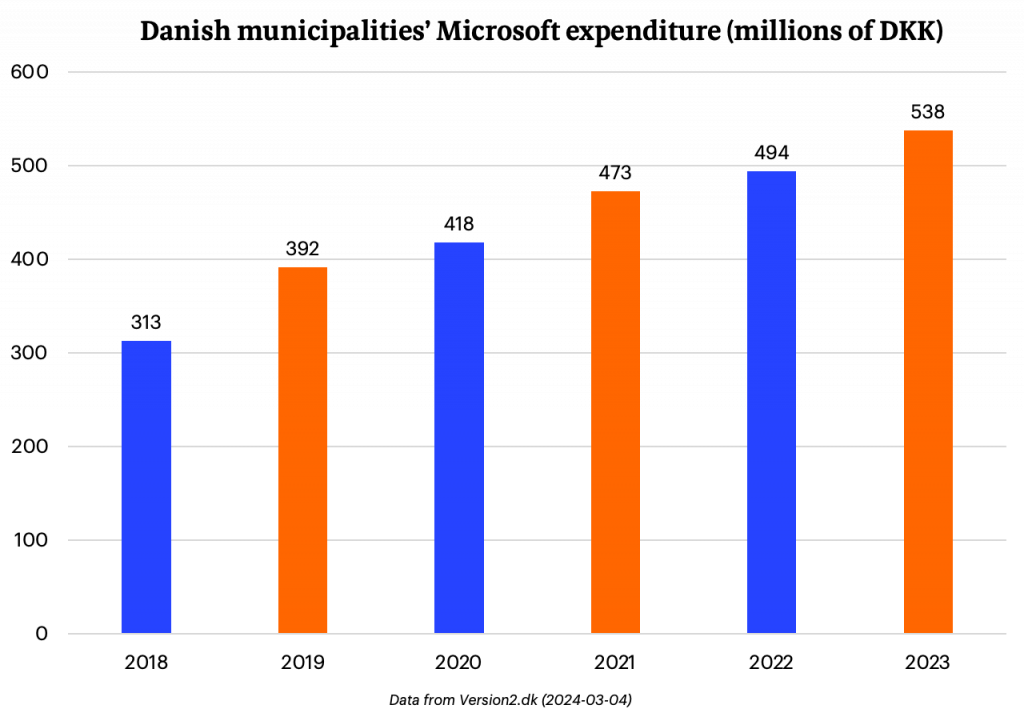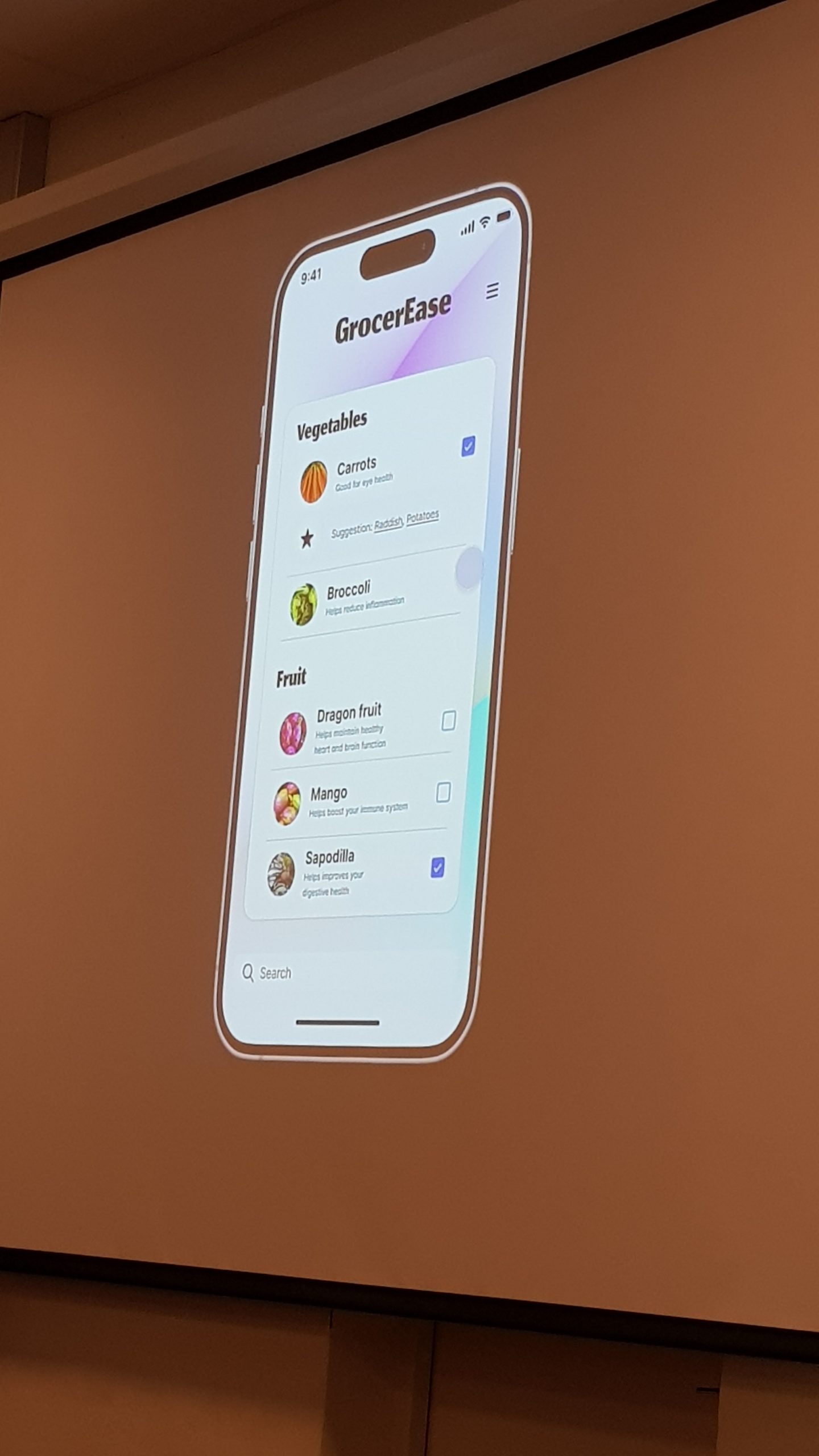
This is a break-out piece, focusing solely on the topic of vendor lock-in and its monetary consequences, from our comments to the Swedish Tax Agency’s memorandum on MS365 and Teams (Swedish).
When an organization makes itself dependent on a specific supplier’s solutions, without having a real alternative, the supplier is put in a position of power. The more important the supplier’s solution is for the organization, and the more difficult it is for the organization to change supplier, the stronger the supplier’s position becomes.
This applies both to the supplier’s pricing power and the supplier’s freedom to unilaterally change the services and the contract terms that govern how the services are delivered. Here we will primarily focus on the economic consequences.
The case of vendor lock-in in Denmark
In Denmark, the public sector is deeply dependent on Microsoft. We also have a good picture of the economic consequences of this. Danish media, not least the publication Version2, but also Danish public service media, have devoted considerable attention to the issue.
Vendor lock-in is “fundamentally problematic”
In 2018, Danish municipalities paid at least DKK 313 million to Microsoft; by 2023, the figure is around DKK 538 million. An increase by more than 70 percent.

In Denmark, there is no doubt that this is a problem. The issue has been raised at the government level. Denmark’s liberal Minister for Digitalization has commented on the dependency to Version 2, describing it as “fundamentally problematic”, adding “When technology giants use their dominant position to raise prices without us being able to opt out [of using their services], we have to spend even more tax money without getting more value.” Microsoft itself sees no issue with the pricing, which it has described as “fair”.
Open Source solves both vendor lock-in and control
The Danish government has now set aside money to investigate promoting the use of open source in the public sector. The government has also set up an expert group because of the tech giants. Version2 reports that the chairman of the expert group shares the concerns of the Minister for Digitalization. He sees the dependency as a major societal concern. “You give up the possibility of democratic control that we have in other areas. It just doesn’t exist in the same way in this area. It is as if we have forgotten that digital is also a form of infrastructure that is actually very critical for a society, and that is important to both invest in and have some kind of control over,” he says.
The chair of the Association of Municipal IT and Digitalization Managers in Denmark, who is himself head of IT at a municipality, has also highlighted the vendor lock-in concerns from a municipal perspective. While Microsoft’s products do improve over time, he tells DR that “The extra things we get we can’t necessarily use to provide services to citizens more efficiently. That makes it unlikely that we can find savings elsewhere.”
As license costs increase, big IT providers rake in money
In Swedish media, Computer Sweden has cited a report stating that public sector spending on IT services has increased by 25 percent since 2019. “And it’s the big IT service providers that are raking in the money. Although 98 percent of the suppliers that sold to the public sector between 2019 and 2022 were small and medium-sized enterprises, the large companies, which accounted for only two percent, accounted for 67 percent of public sector payments for IT services.”
It is sometimes argued that US cloud service providers are necessary to meet the welfare challenge, where fewer people have to support a population growing older. In October 2023, Version2 reported:
The public sector is experiencing large price increases for IT licenses, so large that the Capital Region of Denmark laid off 150 employees in the spring.
These were not particularly sophisticated solutions, but entirely basic systems that now cost more than before.





